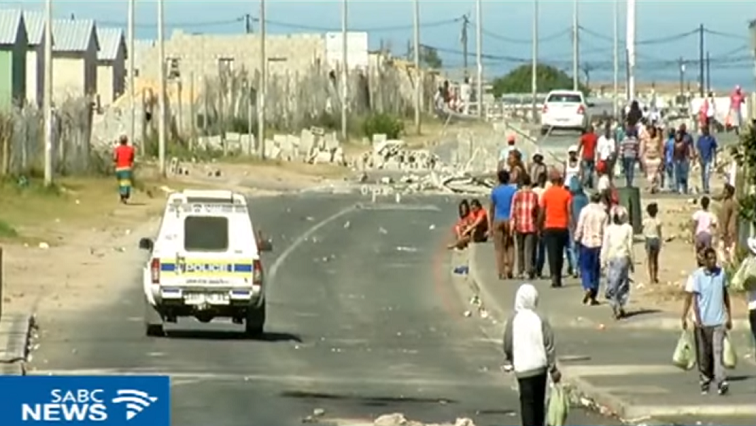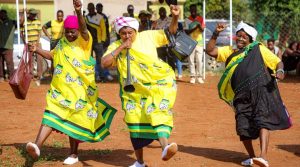The High Court in Pretoria has dismissed an urgent application that wanted to order police to remove people who had demarcated plots on privately held land in Olievenhoutbosch in Midrand.
Judge Shahnaz Miah says the court should not be issuing orders to the police to do what was required of them.
Hundreds of people invaded the land and used red and white tape to demarcate stands for themselves. The land owners say police were reluctant to act on their complaints and they were forced to go to court.
The land debate has taken centre stage, as much as in committee and board rooms, as on the ground. Some believe the spate of land grabs, is being fuelled by the expropriation without compensation policy.
The Human Rights Commission has entered the debate, saying government has failed its people for far too long.
On 18 March in Alexandra shacks were dismantled. The shacks were re-erected in the dead of the night.
But by first light the land grab was halted. Days earlier in Olievenhoutbosch, there was a similar scene prompting a warning from the highest office.
On 23 March in Hermanus, there was violent protest over decent housing. Land remains a powder keg.
”If we don’t get serious about these issues soon, nobody is going to be able to control what’s going to happen with land in South Africa. We can’t have the levels of landlessness, the poverty that we have, the inequality that we have and continue with dialogues and plans that ought to have plans, then one day we will have a plan. It’s time to start really moving fast before this issue gets ahead of us,” says social activist Sizwe Mpofu.
Agri SA Executive Director Christo van der Rheede says; “It is one thing to make a popular statement – land expropriation without compensation. What does it mean in practice? If you can’t translate that into practice it remains a no show.”
African National Congress (ANC) Chair Gwede Mantashe; “It is not a policy to drive whites to the sea, that’s not the policy. The policy is about fair distribution of land and give our people access to that land.”
The Human Rights Commission also entered the fray. It responded to an inquiry into the impact of rural land use and ownership patterns.
“There is in fact an on-going process of poor black people being forced off the land, often into informal settlements, squatter camps without any due legal process. From a human rights perspective one of the concerns is that we have rights that already exist within the bill of rights in the property clause, that says that people who have insecure right should be protected and this is not happening,” says University of Western Cape’s Institute for Poverty, Land and Agrarian Studies Professor Ruth Hall.
Human Rights Commission’s Dr Shanelle Van Der Berg says; “Although urban land reform is also crucially important and might form the subject of more increased land occupation for example, people in rural areas are suffering. They don’t have access to basic economic services or development projects and yet many of them on the land that has incredible minerals and wealth, they are not benefiting.”
Land hunger is real and expectations are high.
Click below for more on land:






